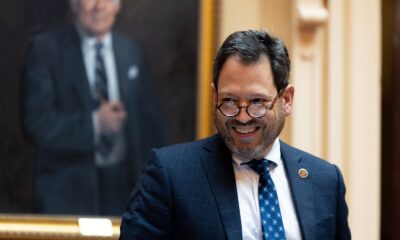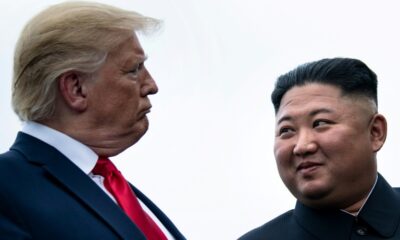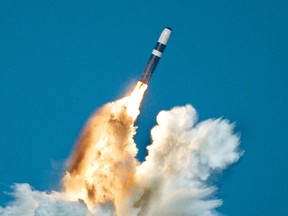World
Rubio Presses Israel on Gaza Strategy After Qatar Strike

U.S. Secretary of State Marco Rubio is set to engage with Israeli officials regarding the future of Gaza following Israel’s recent military action against Hamas operatives in Qatar. This strike has complicated ongoing efforts to negotiate an end to the conflict, raising urgent questions about the next steps in the region.
Rubio spoke to reporters prior to his departure for Israel, indicating that President Donald Trump expressed dissatisfaction with the Israeli strike but reiterated the United States’ unwavering support for Israel. “We’re going to talk about what the future holds, and I’m going to get a much better understanding of what their plans are moving forward,” Rubio stated. He acknowledged the president’s concerns, emphasizing the need to progress amidst the current tensions.
Both Rubio and Trump met with Qatar’s Prime Minister Sheikh Mohammed bin Abdulrahman Al Thani to address the repercussions of the strike, reflecting the Trump administration’s efforts to balance relationships with critical Middle Eastern allies. The Israeli operation has drawn international condemnation and has effectively derailed plans for a ceasefire and the release of hostages, particularly as the U.N. General Assembly prepares to convene, where discussions on the Gaza conflict are anticipated.
Trump’s objectives remain clear: defeat Hamas, end the war, and secure the safe return of all 48 hostages, including those who have died. “And we’ll have to discuss how the events last week had an impact on the ability to achieve that in short order,” Rubio added, underscoring the complexity of the diplomatic landscape.
Rubio’s schedule includes meetings with Israeli Prime Minister Benjamin Netanyahu and other officials in Jerusalem on Sunday and Monday. This visit serves as a demonstration of support for Israel, which is facing increasing isolation, especially in light of the contentious upcoming debates over Palestinian statehood.
The Israeli strike has strained relations not only with Qatar but also with other regional powers, including Saudi Arabia and the United Arab Emirates, all of which have reacted strongly against the actions taken by Israel. Trump himself distanced from the strike, describing it as detrimental to the objectives of both Israel and the U.S., and assured Qatar that such actions would not continue.
In a broader context, the U.S. joined a U.N. Security Council statement condemning the strike without explicitly naming Israel, reflecting the delicate diplomatic balancing act being undertaken.
During his visit, Rubio plans to explore the City of David, a significant archaeological site located in the contested Silwan neighborhood of east Jerusalem. This area features some of the oldest remnants of the city, dating back over 3,000 years. However, the site has faced criticism for promoting a nationalistic agenda that overlooks the rights of Palestinian residents. Israel captured east Jerusalem during the 1967 conflict and considers it part of its undivided capital, while Palestinians claim it as the future capital of a Palestinian state alongside the West Bank and Gaza.
The competing claims over Jerusalem remain central to the ongoing Israeli-Palestinian conflict and often lead to escalations in violence. As Rubio embarks on this significant diplomatic mission, the outcomes of these discussions may have lasting implications for peace efforts in the region.
-

 World4 months ago
World4 months agoScientists Unearth Ancient Antarctic Ice to Unlock Climate Secrets
-

 Entertainment4 months ago
Entertainment4 months agoTrump and McCormick to Announce $70 Billion Energy Investments
-

 Lifestyle4 months ago
Lifestyle4 months agoTransLink Launches Food Truck Program to Boost Revenue in Vancouver
-

 Science4 months ago
Science4 months agoFour Astronauts Return to Earth After International Space Station Mission
-

 Technology2 months ago
Technology2 months agoApple Notes Enhances Functionality with Markdown Support in macOS 26
-

 Top Stories3 weeks ago
Top Stories3 weeks agoUrgent Update: Fatal Crash on Highway 99 Claims Life of Pitt Meadows Man
-

 Sports4 months ago
Sports4 months agoSearch Underway for Missing Hunter Amid Hokkaido Bear Emergency
-

 Politics3 months ago
Politics3 months agoUkrainian Tennis Star Elina Svitolina Faces Death Threats Online
-

 Technology4 months ago
Technology4 months agoFrosthaven Launches Early Access on July 31, 2025
-

 Politics4 months ago
Politics4 months agoCarney Engages First Nations Leaders at Development Law Summit
-

 Entertainment4 months ago
Entertainment4 months agoCalgary Theatre Troupe Revives Magic at Winnipeg Fringe Festival
-

 Top Stories1 week ago
Top Stories1 week agoFamily Remembers Beverley Rowbotham 25 Years After Murder




















